As one of the most popular gambling games all over the world, roulette has found its rightful place among all-time casino classics. In most recent times, it has been successfully rendered into a digital form and incorporated into the gaming libraries of thousands of online casinos. Today, millions of people have access to a wide variety of roulette games on the Internet, each having a unique appearance, qualities, and average payout.
Roulette is a great game to play online or, thanks to its relative simplicity, in your favorite mobile casino. Some casino sites may only have one type of roulette for you to play but the best platforms will offer a large choice and here, we help you decide which is the best type of roulette to play.
History of Roulette
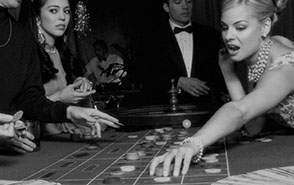 Before looking deep into the different types of roulette, casino players should take a moment to explore the origins of the game and appreciate its complexities. Its history goes back to the 18th century when people in France began to play a game which was quite similar to the modern-day type of roulette. Many historians and researchers, however, believe that it was created by the famous French mathematician, physicist and philosopher Blaise Pascal who came up with its design in an effort to invent the perpetual motion machine.
Before looking deep into the different types of roulette, casino players should take a moment to explore the origins of the game and appreciate its complexities. Its history goes back to the 18th century when people in France began to play a game which was quite similar to the modern-day type of roulette. Many historians and researchers, however, believe that it was created by the famous French mathematician, physicist and philosopher Blaise Pascal who came up with its design in an effort to invent the perpetual motion machine.
The first roulette wheels that were used in Paris around the 1790s had two zero pockets – red for the single zero and black for the double zero. The green color was eventually introduced for convenience after 1800 and in 1843, François and Louis Blanc offered a single zero roulette game in the German tourist and casino town of Bad Homburg. By the end of the century, roulette has spread across most of Europe and North America but in the following decades, governments began banning casino games. All forms of gambling were seen as acts of idleness that contradicted the work ethic and morality.
In the early 20th century, the only towns where roulette could be played legally were Las Vegas and Monte Carlo, offering the American double zero wheel and the traditional French single zero wheel, respectively. A few decades later, in the 1970s, casinos exploded in popularity around the world and one of the most played games was, of course, roulette. Today, different versions of the game can be played in brick-and-mortar gaming halls and online casinos but most of them fall under one of the three basic types of roulette games – French, European or American.
The French and European types of a roulette game feature the single zero wheel, while the American version has the double zero wheel. There is also a slight difference between the European and French variations – the French one is usually in French and comes with the so-called racetrack layout, which will be explained below.
Roulette Rules and Objective
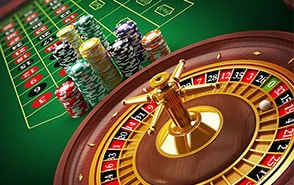 The rules of roulette are rather simple and straightforward – it features a wheel with 37 or 38 numbered pockets, depending on whether it is a single or a double zero roulette game. Half of the slots (18) on the wheel are colored red, while the other half are in black, and the zero slots are in green. Similarly to most casino games, roulette is played against the house, i.e. against the casino. The dealer or croupier tosses a small ball on the spinning wheel and in order to win, players need to predict in which slot the ball would end up.
The rules of roulette are rather simple and straightforward – it features a wheel with 37 or 38 numbered pockets, depending on whether it is a single or a double zero roulette game. Half of the slots (18) on the wheel are colored red, while the other half are in black, and the zero slots are in green. Similarly to most casino games, roulette is played against the house, i.e. against the casino. The dealer or croupier tosses a small ball on the spinning wheel and in order to win, players need to predict in which slot the ball would end up.
To do that, they place their wagers on a table layout where all the numbers from the wheel are arranged within a three-column chart. Players put their chips on the sections corresponding to the number or group of numbers they wish to bet on, for example on a single number or on all reds. When the ball on the wheel starts to slow down, no more betting is allowed. When the wheel stops, the croupier, or the software in online roulette games, announces the winning number and pays out to all players who made a correct prediction.
As you may know already, roulette is a game of chance and winning does not depend on the player’s skills or knowledge. However, some bets are more likely to bring you a win than others because of their probability. This term indicates the odds of something happening – in this case, how likely it is for a single number or a group of numbers to win. The probability is most commonly shown as a fraction and is pretty easy to understand but we will delve into it in the following sections.
When choosing a roulette game to play for real money, you need to understand which types of roulette have a larger house edge and in which games, you are less likely to lose. For this, you will need to have at least a basic knowledge of the bet types, their odds and payouts, as well as the concept of house edge.
Bet Types and Payouts in Roulette
Along with betting on a particular number (straight bets), players can place a bet on a group of numbers – they can choose odd or even numbers, red or black, high or low numbers, dozens or columns. While these are known as outside bets, there are also inside bets available.
Chips are placed within the numbered grid and these bets include straights (on a single number), splits (on two neighboring numbers), streets (on the three numbers in the same row), corners (on four numbers forming a square), and six lines, also known as double streets (a bet that includes six consecutive numbers).
Special Bets in French and European Roulette
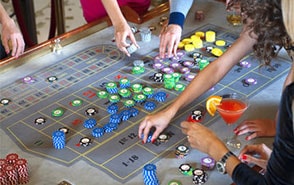 In some games, typically French-style roulette versions, players have additional betting options. There is a second betting area, separate from the main table layout, and it is known as the racetrack due to its oval shape. It allows you to place the so-called call bets, also known as French bets for their French names.
In some games, typically French-style roulette versions, players have additional betting options. There is a second betting area, separate from the main table layout, and it is known as the racetrack due to its oval shape. It allows you to place the so-called call bets, also known as French bets for their French names.
These are bets on larger groups of numbers and are quite popular among players in casinos all over the world. The first one is Voisins du Zéro, which translates as “numbers of zero”, and includes the zero and the 16 numbers positioned on both of its sides on the wheel.
Another special bet is Jeu Zéro (zero game), which is a bet on the zero and the six numbers closest to it. You also have the option to place the Tiers du Cylindre bet, which encompasses roughly a third of the wheel, which is positioned on the opposite side of the zero. The other French bet, called Orphelins, includes the two opposite sections of the wheel which are not covered by the large Voisins and Tiers du Cylindre bets. In addition, there are also variable Neighbor Bets, which allow you to place a bet on up to 8 neighboring numbers, based on their positions on the wheel.
Odds of Roulette Bets and Payouts
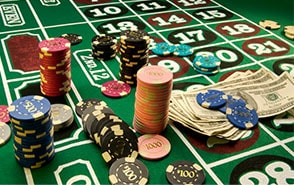 It is also important to take the bet odds and payouts when choosing a roulette game to play. Let us start from the bets most likely to bring you a win – these are red/black, high/low and even/odd. Even though they are widely known as even-odds bets, actually they are not due to the presence of one or two zero pockets on the wheel.
It is also important to take the bet odds and payouts when choosing a roulette game to play. Let us start from the bets most likely to bring you a win – these are red/black, high/low and even/odd. Even though they are widely known as even-odds bets, actually they are not due to the presence of one or two zero pockets on the wheel.
The odds of any particular number winning are, on the other hand, much lower but if you win such a bet, you will win a much larger prize. The less likely a bet is to win, the larger the payout. For instance, the payout for even-odds bets is even, or 1 to 1, so you receive a winning that is equal to the size of your bet, plus your original bet.
The payout for a winning column or dozen bet is 2 to 1, while for a combination of six numbers, it is 5 to 1. For a bet on five numbers, you receive a payout of 6 to 1, and for a four-number bet, the payout is 8 to 1. The payouts for a winning combination of three numbers is 11 to 1, while the payout for a two-number bet (split) is 17 to 1. Normally, the payout for a straight bet is the most attractive one at 35 to 1.
You have even odds or 50:50 (50%) when you are flipping a coin – heads and toes would be roughly equally likely to occur. In roulette, however, the odds of the ball landing on black or red, for example, are lower and are between 47.40% and 48.60% for European and American versions, respectively.
Roulette House Edge and True Odds Explained
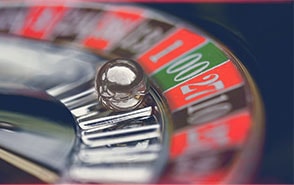 As we mentioned earlier, roulette is a game of chance and in each spin, the ball would land on random numbers. There might be some exceptions, particularly in physical roulette games in land-based casinos, where the wheel may be rigged, the table unleveled, etc., so certain outcomes may occur more often than others. In online roulette, however, the game is based on a piece of software called Random Number Generator (RNG), which means that in each spin, the ball lands on a random pocket. No number is likelier to come out, so the only factor of winning or losing is the probability.
As we mentioned earlier, roulette is a game of chance and in each spin, the ball would land on random numbers. There might be some exceptions, particularly in physical roulette games in land-based casinos, where the wheel may be rigged, the table unleveled, etc., so certain outcomes may occur more often than others. In online roulette, however, the game is based on a piece of software called Random Number Generator (RNG), which means that in each spin, the ball lands on a random pocket. No number is likelier to come out, so the only factor of winning or losing is the probability.
Taking the theory of probability into account, we know that the game of roulette favors the house and the player is less likely to win on average. This advantage of the casino is called house edge and is represented as a percentage. Anyone with some basic mathematical knowledge could easily calculate it by comparing the true odds and the payout ratio of each possible outcome. For example, in European roulette games, the payout for all even-odds bets is 1 to 1, whereas the odds against winning are 1.056 to 1.
As you can see, casinos offer a lower payout than what is mathematically calculated, giving them a slight advantage over players. Although it varies in each different game, depending on its specific rules, the house edge in European/French roulette is usually 2.7%. In American roulette, where we have an additional numbered pocket on the wheel, namely the double zero, the house edge is almost double at 5.26%. It means that when you bet £100 on American roulette, the casino would keep £5.26, whereas in single-zero games, you would lose only £2.70 on average. Note that this is just a mathematical construct and due to the randomness of roulette, the actual toll on your bankroll would probably be completely different.
Most types of roulette games, whether they are single or double zero games, are based on these simple concepts, but there are also a couple of special rules that may appear in a select number of online roulette games. Normally, they appear in either European or French roulette versions and make them a little bit more favorable to the player. One of them is the La Partage rule, according to which the player loses only half of any even-odds bet if the ball lands on zero. This option reduces the house edge on even-odds bets to 1.35%.
Similarly, under the En Prison rule, in that exact situation, the player can choose to lose half of the bet. But there is also the option to keep the chips on the same place for the next spin and either reclaim the initial bet or lose it. This rule also cuts down the house edge from 2.7% to around 1.35%.
Beginner Tips for Improving Winning Odds in Roulette
Since no skill is required in order to win in roulette, there are no actual strategies for playing. There are, on the other hand, tips every beginner player should consider before choosing a real-money version of the classic game. These are simple tips based on just common sense but they should improve players’ winning odds in roulette.
Avoid American Roulette
The first and most simple thing to do when choosing a type of roulette is to avoid the double zero American roulette. Even if you love Mickey Mouse, can’t get enough of Michelle Obama and think that a Big Mac is the height of world cuisine, when it comes to roulette, American roulette ranks behind Rotherham Roulette, Romanian Roulette and Really Rubbish roulette.
The reason for this is simple: that second damn double zero. The green numbers in roulette, zero and double zero in American roulette, are what give the casino their advantage over the player. There are 36 numbers, winning bets pay £36 to a £1 stake – so far, so fair. Throw in a single zero and that £36 return equates to a house edge of 2.70%, but play the American game with its double zero and that advantage to the casino almost doubles, going up to 5.26%.
Avoid Short Pays
You would struggle to find an online casino that offers short pays these days but it has been known and this, naturally enough, massively reduces the player’s chances of winning and hugely increases the house edge. By short paying, we mean a casino, mobile, online or land-based, that pays out at lower odds than it should, for example at odds of 34 to 1 for a single number instead of 35 to 1, or at 16 to 1 instead of 17 to 1 for a two-number bet.
Play French Roulette If You Play Even Money
In French roulette, or indeed on most games labeled as European roulette, you get a nice little kicker if you generally play the even-money inside bets. Should the ball land in the normally dreaded zero, depending on the precise rules, you will either lose only half your stake or else you will have the chance to win half your stake back. As explained above, this only applies to even-odds bets where you have one of the two special French rules.
La Partage and En Prison both improve the overall house edge if you are backing the red/black, odd/even or high/low bets and so you should always opt for such a table if these are your favored roulette betting options.
Avoid Progressives and Other Novelty Games
Many of the best online casino sites offer modern roulette variants that either include some form of progressive jackpot or else have some other bonus-style feature or round. Our advice to avoid these games comes with a huge IF attached, and that “if” is that you should avoid these games IF you are looking to play roulette for as long as possible to give yourself the best chance of winning – or losing as little as you can – or to complete the wagering on a casino bonus.
Many people love progressive jackpot slots for their life-changing possibilities and many people play progressive, jackpot or bonus roulette for the same reason – to change their life forever from just a single spin. Other people love novelty games for their bonus payouts, extra features or multi-wheel options for the speed of the game.
However, those extras invariably come with a price and that price is the house edge being significantly larger. If you know that and are happy to pay a little extra in the long term for the chance of short-term fun – or a huge progressive win – that is fine but the important thing is to be aware that you are paying for that privilege.
Roulette Advanced Winning Strategies and Techniques
There is one incredibly important thing every roulette player should keep in mind – no fancy strategy or probability calculation guarantees success. With this game, even the most advanced winning strategies will not help you win all the time because of the element of chance, which is fundamental. Believing in popular myths about roulette will not help you, as well – there are no hot and cold numbers, winning streaks are random, and no number is due to hit at any particular point of time.
There are, on the other hand, certain strategies that may help you generate some winnings or at least lose less. In all honesty, these are not actual winning strategies but betting systems that, if used properly, can help you with bankroll management.
Progressive Betting Systems and the Martingale
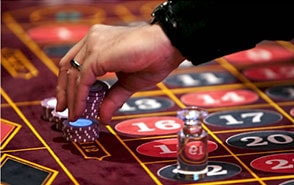 Progressive betting systems are created around the concept of increasing the size of your bet after a winning or a losing spin. The aim of such systems is to win back the money you have lost with previous unsuccessful bets. One of the most widespread examples is the Martingale System because it is rather straightforward and easy to apply even for less experienced players. It suggests that you double your bet after every loss so that when you eventually win, your payout would recuperate all previous losses.
Progressive betting systems are created around the concept of increasing the size of your bet after a winning or a losing spin. The aim of such systems is to win back the money you have lost with previous unsuccessful bets. One of the most widespread examples is the Martingale System because it is rather straightforward and easy to apply even for less experienced players. It suggests that you double your bet after every loss so that when you eventually win, your payout would recuperate all previous losses.
Another popular betting strategy is the Paroli system, also known as the Reverse Martingale. Under it, you double your bet after every win. While this system certainly seems safer than the Martingale, it is not always the case. These two strategies are often described as steep progressions, as the size of the bet increases quite significantly. Both are used for even-odds bets and could be very useful in returning losses. However, they are also associated with a huge risk because the player can easily run out of money or reach the stakes limit of the game.
Other progressions include betting by using the Fibonacci sequence (a series of numbers 0, 1, 1, 2, 3, 5, 8, 13, 21, 34, etc.) and the Labouchere system, which also uses a sequence of numbers, corresponding to the size of your bet. In it, the sum of the different numbers is your desired profit at the end of the game. There are also systems known as flat progressions – your bet still increases, but one unit at a time. One of them is the D’Alembert system, according to which you increase the size of your bet gradually when losing and decreasing it just as gradually after a loss.
There are many other types of systems explained in detail in various books and guides on how to play roulette and all of them also available online for players to check out and test for themselves.
Non-Progressive Betting Systems
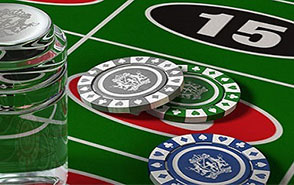 In addition to the dozens of progressive roulette systems and their reversed counterparts, you can also opt for other strategies where your bet remains the same. One of them is the Cancellation Betting system, which has an idea that is quite similar to the Labouchere system. In here, players come up with a target win, £15 for instance, and split that number to multiple units of the same value. In this case, that would be 15 units of £1, represented as a sequence of numbers. For each bet, players wager the sum of the first and the last number and then, cross them after a win. If they lose, the sum of these numbers is added to the right side of the sequence.
In addition to the dozens of progressive roulette systems and their reversed counterparts, you can also opt for other strategies where your bet remains the same. One of them is the Cancellation Betting system, which has an idea that is quite similar to the Labouchere system. In here, players come up with a target win, £15 for instance, and split that number to multiple units of the same value. In this case, that would be 15 units of £1, represented as a sequence of numbers. For each bet, players wager the sum of the first and the last number and then, cross them after a win. If they lose, the sum of these numbers is added to the right side of the sequence.
There is another, even more popular option and it is sometimes called the James Bond strategy. It is not a strategy at all and using it, you simply place a bet that covers more than half of the table. It includes a £5 6-line bet on numbers 13 through 18, a £14 bet on high (numbers from 19 through 36), as well as a £1 straight bet on 0. At first, it seems this system actually turns the odds in your favor because you bet on 25 numbers at once. In reality, it does not and you may still huge amounts of money only with several games.
There are various other systems similar to the James Bond strategy such as the Five Quad strategy and the Double Street Quad strategy, where you also try to cover most of the table. You can also place neighbor bets or call bets to get that result.
Pros and Cons of Roulette Betting Systems
 When any of the above-mentioned systems is used carefully and with regards to the size of your bankroll, it can be very useful in money management. Usually, these systems have a pre-determined end to the betting – for instance, when you reach the target win or after a particular number of losses. Most progressive betting systems, especially the steep ones, offer the possibility of quite attractive wins.
When any of the above-mentioned systems is used carefully and with regards to the size of your bankroll, it can be very useful in money management. Usually, these systems have a pre-determined end to the betting – for instance, when you reach the target win or after a particular number of losses. Most progressive betting systems, especially the steep ones, offer the possibility of quite attractive wins.
However, roulette players should be aware of the risks that come with all these systems. With strategies such as the Martingale, you can easily reach the table limit after just a few spins as you double your bet each time you lose. Even worse, there is a chance you spend all your money before you have the chance to regain your losses. In addition, it has been proven mathematically that even low-risk betting systems do not guarantee a win and eventually all lead to some losses. Using computer software, many researchers have demonstrated the ultimate uselessness of these so-called strategies.
Still, such systems may decrease your losses or even increase significantly your wins over a long period of time by simply bringing some order in your betting. Of course, you could also win big if you are lucky, but this is purely based on chance and cannot be predicted by any system or strategy. Probably the best course of action, especially for low-risk gamblers, is to opt for covering large sections of the roulette table. This tactic may prove to be profitable in the long run but the winnings will not be particularly impressive.
Interesting Roulette Variations
Double Ball Roulette
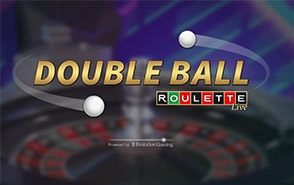 One of the most exciting roulette games to play is Double Ball Roulette, which can be found at multiple online and mobile casinos. As suggested by its title, it features not one but two balls and players have the opportunity to bet on both of them simultaneously. Of course, while the payout for a straight up bet in a regular, single-ball game is 35 to 1, the winnings here a bit different.
One of the most exciting roulette games to play is Double Ball Roulette, which can be found at multiple online and mobile casinos. As suggested by its title, it features not one but two balls and players have the opportunity to bet on both of them simultaneously. Of course, while the payout for a straight up bet in a regular, single-ball game is 35 to 1, the winnings here a bit different.
You win 17 to 1 if one of the numbers you picked wins and you receive 34 to 1 if you manage to predict the two winning numbers. In addition, you can make a side bet to qualify for the Double Ball Jackpot – bet on a single number and after the wheel stops spinning, both balls need to land on the pocket you have chosen in order to win.
French Roulette
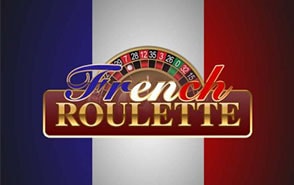 All experienced casino players know well which type of roulette is the best one – this is the French-style roulette, which features just one zero pocket on the wheel and has half the house edge that is offered by American roulette versions. But why not European roulette, you would ask. For one simple reason – the French type of the game comes with the La Partage and En Prison rules, which reduce the house advantage even more.
All experienced casino players know well which type of roulette is the best one – this is the French-style roulette, which features just one zero pocket on the wheel and has half the house edge that is offered by American roulette versions. But why not European roulette, you would ask. For one simple reason – the French type of the game comes with the La Partage and En Prison rules, which reduce the house advantage even more.
Of course, these games also allow you to choose from a wide range of call bets on the racetrack layout. As we mentioned earlier, this is a good betting strategy, especially for beginner players who are not confident enough to bet all on black.
Live Roulette
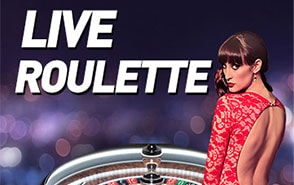 When speaking of online and mobile roulette games, we cannot but mention the live roulette versions, which are more technologically advanced, personalized and authentic than any other form of roulette.
When speaking of online and mobile roulette games, we cannot but mention the live roulette versions, which are more technologically advanced, personalized and authentic than any other form of roulette.
Typically, the largest and most exclusive casinos on the Internet would have a dedicated live dealer section. Some of them even offer Live Casino mobile apps where you can choose from various American, European, or French-style games of roulette.